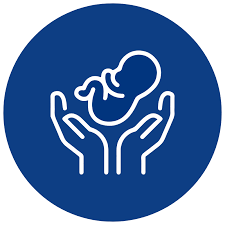+918042757060

This is your website preview.
Currently it only shows your basic business info. Start adding relevant business details such as description, images and products or services to gain your customers attention by using Boost 360 android app / iOS App / web portal.
Description
Viral fevers in children are quite common, and they are usually caused by various viruses like the flu, common cold, or respiratory infections. Here are general treatment guidelines for viral fevers in children: 1. Rest and Hydration: Ensure your child gets plenty of rest, as this helps their immune system fight the infection. Keep them hydrated by offering water, oral rehydration solutions (ORS), clear soups, and fruit juices. This is especially important if the fever is accompanied by vomiting or diarrhea. 2. Fever-Reducing Medications: Paracetamol (Acetaminophen): It’s commonly used to reduce fever in children. The dose should be based on the child’s age and weight. Never give aspirin to children, as it can lead to a rare but serious condition called Reye's syndrome. Ibuprofen: This can also be used for fever and pain relief, but it should be given under the guidance of a pediatrician. 3. Cooling Measures: Cool Compress: Use a cool, damp cloth to wipe your child’s body, particularly the forehead, armpits, and back of the neck. Avoid cold water or ice, as this could lead to shivering, which might raise body temperature. Lukewarm Baths: A lukewarm bath may help lower the fever. Avoid using cold water. 4. Comfortable Environment: Keep the child’s room cool and ventilated, but avoid drafts. Dressing them in lightweight clothing can also help. Use a fan or air conditioning to keep the temperature comfortable without chilling the child. 5. Monitoring Symptoms: Watch for warning signs such as difficulty breathing, persistent vomiting, a rash, prolonged high fever (more than 3-5 days), or if the child seems unusually lethargic or irritable. If the fever does not respond to medication or the child has other concerning symptoms, consult a healthcare professional immediately. 6. Avoid Antibiotics: Antibiotics do not work against viral infections. These should only be used if a bacterial infection is suspected or confirmed by a doctor. 7. Diet: Offer small, frequent meals of easily digestible foods such as porridge, rice, and soups. Avoid giving very fatty or spicy foods as they may upset the stomach. When to Consult a Doctor: If the fever is high (above 102°F or 39°C) and persists for more than a few days. If your child is under 3 months old and has a fever. If your child experiences convulsions (febrile seizures) due to the fever. If your child has underlying health conditions that might complicate a viral infection. Always consult with a pediatrician for specific advice or if you are unsure about the proper treatment for your child’s symptoms.

